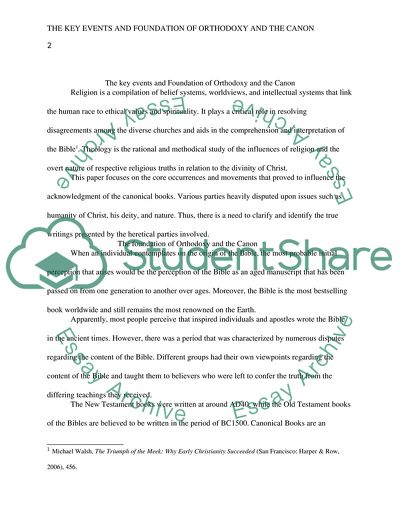Cite this document
(The Key Events and Foundation of Orthodoxy and the Canon Coursework Example | Topics and Well Written Essays - 1250 words, n.d.)
The Key Events and Foundation of Orthodoxy and the Canon Coursework Example | Topics and Well Written Essays - 1250 words. https://studentshare.org/religion-and-theology/1775237-the-key-events-and-foundation-of-orthodoxy-and-the-canon
The Key Events and Foundation of Orthodoxy and the Canon Coursework Example | Topics and Well Written Essays - 1250 words. https://studentshare.org/religion-and-theology/1775237-the-key-events-and-foundation-of-orthodoxy-and-the-canon
(The Key Events and Foundation of Orthodoxy and the Canon Coursework Example | Topics and Well Written Essays - 1250 Words)
The Key Events and Foundation of Orthodoxy and the Canon Coursework Example | Topics and Well Written Essays - 1250 Words. https://studentshare.org/religion-and-theology/1775237-the-key-events-and-foundation-of-orthodoxy-and-the-canon.
The Key Events and Foundation of Orthodoxy and the Canon Coursework Example | Topics and Well Written Essays - 1250 Words. https://studentshare.org/religion-and-theology/1775237-the-key-events-and-foundation-of-orthodoxy-and-the-canon.
“The Key Events and Foundation of Orthodoxy and the Canon Coursework Example | Topics and Well Written Essays - 1250 Words”. https://studentshare.org/religion-and-theology/1775237-the-key-events-and-foundation-of-orthodoxy-and-the-canon.


